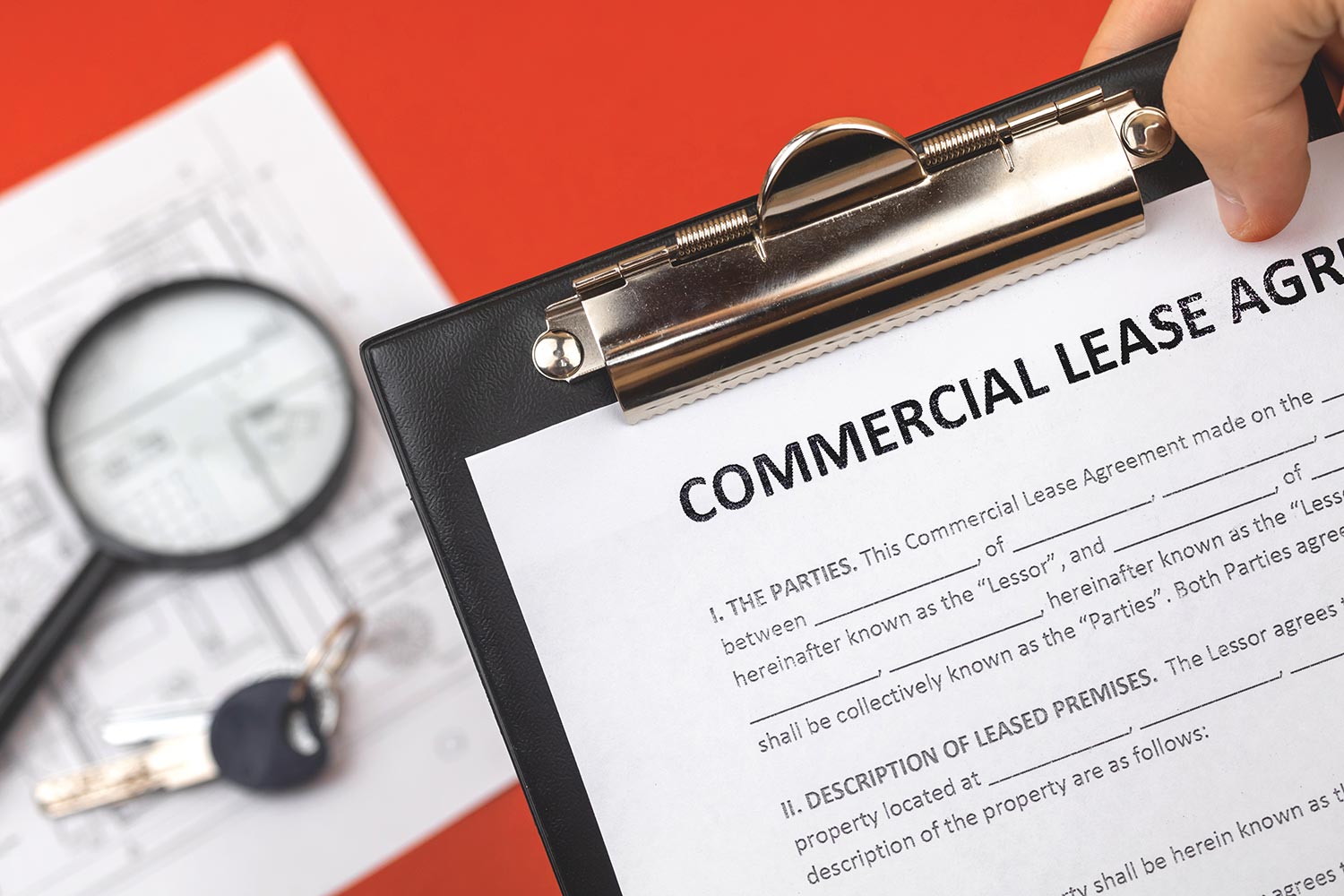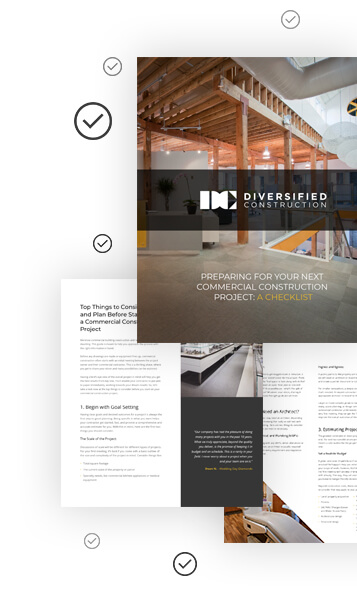Five Important Factors to Look for Before Signing a Lease Agreement
Finding the perfect commercial space for your business is an exciting time, but there’s a few things to consider before signing on the dotted line. Even if a commercial building meets your checklist of required amenities, you want to ensure the lease’s terms and conditions are a good fit – as well as understanding the potential impact it could have on your business.
A lease is a binding agreement, so it’s crucial to review every factor before making such a big commitment. In this article, we will discuss five important factors to look for before signing a lease agreement.
Rent and Lease Types
When looking for any rental space, the first factor to consider is the rent and if it fits into your budget. It’s important to acknowledge rent typically increases on an annual basis and some leases require tenants to pay operating expenses. These extra expenses (or overhead costs) include things like utilities, property taxes, insurance, maintenance, repairs, janitorial services, landscaping, property management, and so forth.
At the end of the day, the overall cost of your space will depend on the type of lease you sign (and don’t forget you have the power to negotiate). Listed below are 3 common types of leases for commercial properties.
Gross Lease: Commonly used for office spaces, gross leases require tenants to only pay a fixed rate. This single flat fee covers rent and all operating expenses – like utilities, insurance, and repairs.
Modified Gross Lease: Modified gross leases require tenants to pay the base rent plus a percentage of the operating expenses – which is usually split between other tenants within the building. This type of lease is also typically used for office spaces.
Net Lease: Most popular amongst retail and industrial spaces, net leases typically require tenants to pay the base rent, as well as all of the overhead costs. The overhead costs for net leases typically include the property taxes (which could increase annually), the landlord’s insurance, and common area maintenance. Passing along the overhead costs to tenants allows the landlord to relinquish some responsibility.
Terms and Conditions
Signing a lease is a big commitment and you should ensure the terms and conditions are suited for your business in the long-run. Listed below are several factors (personal and economic) to consider when negotiating lease terms and conditions.
1 - Lease Term
Commercial leases tend to be long, ranging anywhere from 5 to 20 years. It’s important to commit to a lease length that gives you and your business stability and flexibility. There are benefits and drawbacks to both long and short leases, it just depends on what you’re looking for.
Longer leases provide a safety net in case the rental market substantially increases, but could become burdensome if your business outgrows the space or just no longer fits your needs. If you’re investing money into your commercial space, you may want to consider a longer lease term. Even if the rent keeps up with the market rates – your business assets will become more valuable.
In contrast, shorter leases give you the opportunity to expand your business in the future or relocate, but also mean that you’ll have to keep up with market rent prices and the costs of moving.
2 - Lease Conditions
Having a termination option written into your lease could save you from a significant amount of stress (and money). For example, if you're unable to obtain the necessary permits or licenses to run your business, there should be a clause in your contract that allows you to terminate your lease.
3 - Commencement Date
Once you have come to a lease agreement with your landlord, it’s time to decide when the lease begins. It’s important to note a lease does not have to begin the day you sign it. In fact, it’s best if it doesn’t.
We recommend extending your commencement date to the day you plan on moving in and beginning business operations. This will allow you to avoid paying rent while you’re gathering permits, licenses, and renovating the space. Overall, you’ll be able to save money – especially if there’s any delays.
At Diversified Construction, we assist our clients in evaluating potential spaces and reviewing leases before any contracts are signed and sealed. Having a contractor's perspective and expertise is incredibly beneficial, as we can provide knowledge on the condition of a space, the mechanicals, estimated repair costs, and so forth.
Maintenance and Repair
Tenants' responsibility for maintenance and repair will vary from lease to lease. While some tenants may be required to upkeep with maintenance and repairs of their space, others may not. Your responsibilities will vary significantly whether you're leasing an entire building versus only leasing part of an office space.
For example, if you’re leasing only an office space within a building, the landlord will most likely be responsible for maintenance and repair. In most cases, this will be covered in the operational costs. Whereas if you’re leasing an entire building, you will most likely be responsible for the upkeep – but you may be able to save some money on monthly expenses. Overall, it will just depend on the type of business and the lease agreement.
Preferably, tenants should only be responsible for the equipment serving their space. Landlords should manage areas like the structure, roof, exterior, sewer systems, and ventilation – all which could be very costly if it were to end up in your scope of responsibility.
If you’re responsible for the maintenance and repair, it’s important to do the due diligence in understanding the current state of the mechanical conditions – before signing the lease. This will allow you to anticipate service or replacement costs.
Disregarded Provisions to Heed
There’s an abundance of information being absorbed throughout the process of signing a lease, which can often lead to disregarded information. Listed below are a few details that can easily be forgotten, but are important and should be considered before committing to a space.
Subleasing Options: If the situation ever arises, you may need to sublease your space. Depending on the lease and the landlord, a landlord may choose to terminate a lease instead of allowing a tenant to sublet. While this may be fine (or even ideal) for some tenants, other tenants could lose a significant amount of money that they invested into the space.
While a landlord has the power to deny a sublease or terminate a lease, the tenant still has rights if a landlord is being unreasonable. The lease should protect tenants in the event of this and give them the option to change their mind and stay.
Damage and Destruction: It’s important to consider a course of action in the event of property damage and to have that written in the lease agreement. It shouldn’t be too easy for a landlord to terminate a lease in the event of damage – in fact, landlords should have some responsibility in restoring the space. Tenants should also have the opportunity to repair damage, especially since they may have spent money improving the space.
There are a lot of scenarios that could affect a landlord’s rights to terminate, which you should be aware of and in agreement to before signing a lease.
Relocation Rights: Relocation rights are in favor of the landlord if they need to move a tenant to a different space. If you’ve spent time and money improving your space, this may be a clause you want to delete all together. If you’re open to negotiating relocation terms, you’ll want to ensure the space is comparable (if not better) than the original space you signed to.
At Diversified Construction, we make certain to only hire highly skilled and qualified subcontractors to guarantee success at the best price.
Tenant Improvement Allowance
A tenant improvement allowance is money given to a tenant from the landlord, acting as a contribution to your business. Afterall, you’re not only improving your space, you're improving the landlord's space in the long-run.
While there may be some pre-agreed upon improvements, the tenant allowance gives you the opportunity to make the necessary renovations for the space to reflect your business. Branding and design are a direct correlation to a business’ values and success.
Tenant improvement allowances can be either used towards progress payments or landlords can reimburse you after renovations are complete. Either way, you’ll have to inform your landlord (and receive approval) of renovation plans and timeline. This is where a contractor, like Diversified Construction, would come in. Contractors will provide insight on costs and assist in gathering all necessary permits before beginning construction. This will streamline the process and ensure efficiency.
Conclusion - What to Look for Before Signing a Lease
In conclusion, finding the perfect-fitting office space goes beyond amenities – it also includes the lease’s terms and conditions. Before signing on the dotted line, you should ensure the lease protects you as a tenant and your business. Working with the right team will help ensure you select the right space and negotiate a fair lease agreement.
With over 60 years of business experience in the Twin Cities. Diversified Construction specializes in building and remodeling commercial properties. Contact us today at 952-929-7233 if you’re looking to start a new project.


